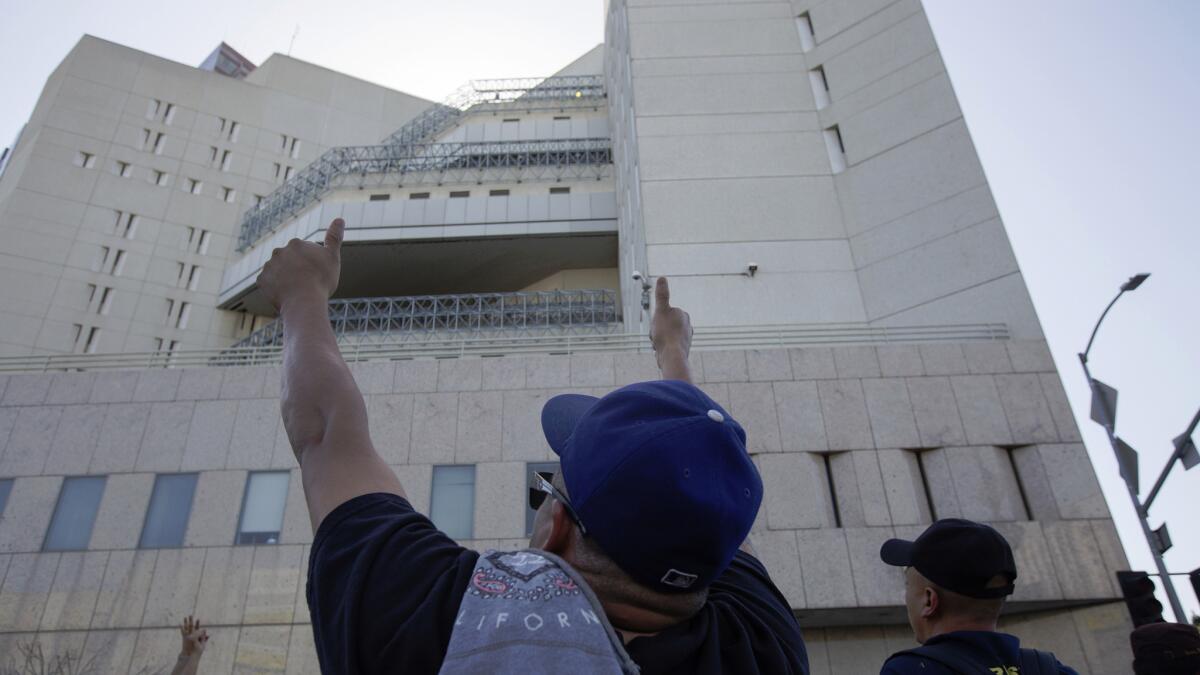Editorial: Why should immigration detainees be denied access to telephones?

Immigrants held in detention face daunting challenges in their struggles to remain in the country. Yet one of the key determining factors in whether they ultimately win permission to stay has nothing to do with the facts or circumstances of their cases. It is whether they have a lawyer to advise them. A 2011 study headed by a federal judge – and another study conducted this year – found that immigrants with lawyers are five times more likely to win their cases than those without.
But the government is not required to provide an attorney to people in immigration court, and the bench of lawyers willing to work for free is much smaller than the demand for its services.
See the most-read stories in National News this hour >>
A legal settlement this week should help remove one obstacle facing detainees: their lack of access to telephones. In a case filed in a San Francisco federal court, detainees represented by the ACLU and other civil rights groups argued that the conditions of their detention in four California facilities interfered with their right to find counsel, to gather evidence on their own behalf and to receive a fair hearing when they make their cases in court. How were those rights being impeded? Through policies that severely limited their use of telephones.
Part of the problem is the immigration detention system itself, which relies primarily on contracts between the federal government and the county jails or private companies that house detainees as well as other prisoners. Those facilities have their own rules about inmate access to telephones that also apply to immigration detainees even though the latter have not been charged with or found guilty of crimes. Instead, they are fighting accusations that they have violated civil codes governing legal status in the country (which also is why they do not have a legal right to appointed counsel, as criminal defendants do).
According to the lawsuit, detainees often face lengthy waits to use the phone in crowded facilities, get cut off after as little as 15 minutes, may not leave messages and are denied privacy for phone conversations with their lawyers. It doesn’t help that in-person legal consultations are often difficult or impossible to arrange; the four detainees who filed the lawsuit, for instance, are being held far from San Francisco where their cases are being heard and where most of the pro bono legal help is based.
Under the settlement, Immigration and Customs Enforcement will offer broader access to phones, including dedicated toll-free lines to federal agencies, phone booths for privacy and a larger bank of phones as well as free calls for the indigent. Unfortunately, the agreement applies only to the four facilities named in the lawsuit. ICE should on its own initiative apply these new policies nationwide to ensure the government respects the efforts of detainees to invoke their legal rights to a fair hearing over their immigration status.
MORE NATIONAL NEWS
Body of 2-year-old boy found after Disney World gator attack, sheriff says
At an Orlando hospital, the victims kept coming — but so did an army of nurses
The worst mass shooting? A look back at massacres in U.S. history
More to Read
A cure for the common opinion
Get thought-provoking perspectives with our weekly newsletter.
You may occasionally receive promotional content from the Los Angeles Times.










